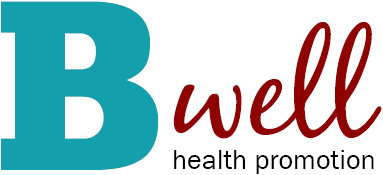SHAG Talks: Pre Exposure Prophylaxis Podcast [Transcript]
Hi everyone! My name is Christine. And my name is Conor. And we’re from SHAG. Today, we’re going to be talking about pre-exposure prophylaxis, also known as PrEP, a medication to protect people who do not have HIV from getting infected with it. You may also know this medication by the brand name, Truvada, which has been FDA-approved since 2012. This is not to be confused with post-exposure prophylaxis, or PEP, which is another anti-HIV treatment used to block infection *after* exposure to HIV. PEP is also an important tool to prevent HIV, but in this podcast, we will be focusing on PrEP.
PrEP comes in a pill form that must be taken every day to provide the maximum amount of protection. You might experience symptoms like nausea, headaches, or decreased weight, but these vary by person, and are usually only experienced in the first month of treatment. If taken every day, PrEP can be up to 99% effective in preventing HIV infection. However, we still highly encourage you to use other barrier methods alongside PrEP such as internal or external condoms because, remember, PrEP is only protective against HIV, and not pregnancy or other sexually transmitted infections like chlamydia, gonorrhea, or herpes.
In the United States, 1.2 million people are infected with HIV, and most do not know their HIV status. Each year, there are 50,000 new cases of HIV infection and 1 in 5 of these diagnoses are in young adults. You may now be wondering-- who should take PrEP? PrEP is for preventing HIV infection in ‘high risk’ individuals. So, what does ‘high risk’ mean? The Centers for Disease Control and Prevention, or the CDC, recommends PrEP “for people who do not have HIV but who are at substantial risk of contracting the virus.” This includes people who are sexually active with multiple partners or who have at least one partner whose HIV status is positive or unknown, people who do not regularly use condoms during vaginal and/or especially anal sex, people who have been diagnosed with a sexually transmitted infection in the last six months, and people who share needles or have a sexual partner who does.
PrEP is available on campus at Health Services. Even if you don’t fall under any of the categories we mentioned or were listed by the CDC, you can still talk to a provider at Health Services about whether PrEP is right for you. If you do decide to go on PrEP, costs will vary depending on your health insurance. For example, if you are on the Brown Health Insurance, you will most likely have a copayment of $30/month. Gilead, the PrEP manufacturer, has two medication assistance programs called the Copay Coupon Card and the Patient Assistance Program.
The Copay Coupon Card is a program to assist with copayments and can cover up to $3600/year for people who have nongovernmental health insurance. This includes the Brown Health Insurance, which would make PrEP essentially free. Once you are enrolled under the Copay Coupon Card, you can use it every time you refill your prescription and you do not have to renew your enrollment unless you cancel your health insurance plan or switch to governmental health insurance, such as Medicaid or Medicare.
For people without health insurance or who have a health insurance plan that does not cover prescriptions for PrEP, the Patient Assistance Program (or PAP) may be right for you. For example, if you are a single household member covered under Medicaid and earn up to 500% above the federal poverty line, or less than $60,000/year, PAP can cover the full cost of PrEP. However, once you are enrolled under PAP, you must re-enroll every six months to show continued qualification. To find out what medication assistance program is best for you, contact your health insurance and visit www.gileadadvancingaccess.com to enroll.
For more information on PrEP, check out Health Promotion’s website at brown.edu/bwell. You can also talk to any of us at SHAG by emailing us at [email protected] or texting SHAG from your phone. Thanks for listening, and stay safe, everyone!





